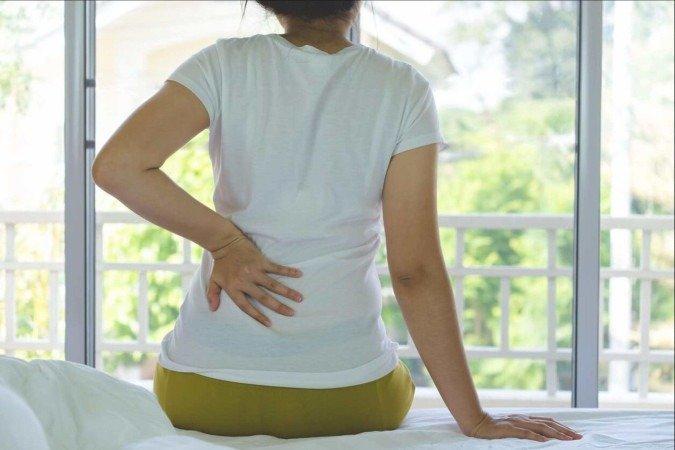Those who do half the work, compared to those who have a regular work desk, face a 15% chance of developing kidney problems.In these, chances of getting lost in security area or developing at night etc. are always high, even the probability is 22%.The findings are from a large study of food and kidney disease that applied economic research and government data, involving 226,000 people 14 years before, 14 years after, and 14 years later.
- CO2 levels in the atmosphere will reach record levels in 2024, warns WHO
- Inequality in access to mammograms reveals flaws in the fight against breast cancer in Brazil
Kidney stones, also known as nephrolithiasis, are one of the most common urological diseases affecting 1% to 13% of the world's population.Although it is usually curable, half of patients experience recurrence within 10 years.In addition to acute pain, the problem is associated with an increased risk of chronic kidney failure and heart disease.This is also one of the main reasons for absenteeism at work.
According to the Brazilian Society of Urology (SBU), about 10% of adults in Brazil suffer from stones at least once in their life, and according to the Ministry of Health, the number of hospitalizations related to the problem increases every year.The International Labor Organization (ILO) estimates that one in five workers in the world works in some form of shift work;The most recent national estimate by the Brazilian Institute of Geography and Statistics (IBGE) is that 6.9 million do their work at non-standard times.
The presentation of the report, from The Sun-And, in China and the fair lessons found in the first Prespair for breathing show that the morgues are set.Hypertnsigniabarulates.
Miterus Urologist sing ora ana, saka Amplexus Saúde Evesialisa, Fritisian Cycle Regulates important kidney functions, such as glomerular filtration, urine concentration of electrolytes.Yen wong works ing wayah wengi utawa owah-owahan, this system is not suitable, kanthi is a direct result of kanggo crew.Antarane, the secretion of antidiuretic hormone (Adh)."The body tends to guarantee that the urinator produces urine leaks and diverts urine, increasing the risk of urine supersaturation and crystals," jlentrehe.
Netto also said that disruptions to the global climate favor the calcium, phosphate, with an increase in the formation of salts that participate in the formation of stones."In addition, increased joint stress and inflammation occurs, which acknowledges the mechanisms of cells related to the capture of precious stones and the formation of kidney stones."
Lifestyle may partially account for the relationship found in a study published in the journal Mayo Clinic Proceedings.Up to 22% of the effect of shift work on kidney risk is related to weight gain.Smoking and insufficient sleep each account for about 6%.On the other hand, fluid intake – especially water, tea and coffee – was shown to be protective, reducing the chance of kidney stones by almost 18%.
"Smoking, poor sleep, prolonged sitting, and high body mass index were identified as important mediators of the association between shift work and kidney stone formation," write Man He and Yin Yang, lead authors of the paper.
The study used data from the UK Biobank, a British database that collects genetic, clinical and behavioral information from half a million volunteers.226,459 employees or self-employed aged between 37 and 73 at the start of the study were excluded and those with a history of kidney stones were excluded.During follow-up - From 2006 to 2023 - 2,893 of them developed nephrolithiasis.
The effect was greater in professionals under 50 years of age and in those who performed activities with low physical exertion.“It appears that lower fluid intake among workers with sedentary activities helps explain this result,” the article notes.
For Yin Yang, epidemiologist and one of the authors of this study, the results reinforce the need for health policies for employees with non -standard working hours.This researcher noted: Our findings show that shift work should be considered as a risk factor for the development of stone in the kidneys. Healthy lifestyle should be promoted including adequate hydration, weight maintenance, regular sleep and reducing sedentary lifestyle and smoking in this group.
"The results of the study without the need to explore the initiatives that try to correct the small points, MD, of the isolation in Rolitic, who wrote an editorial about the research. Kntauf cites, among other initiatives, the encouragement of regular examinations with crystal examinations so as easy as ultrasound; Promoting hydration and weight management conditions and making the appropriate rest areas.
The authors of the article agree that small changes can significantly reduce the risk of kidney stones."Zero intervention on modifiable factors such as body weight and sleep habits can prevent a significant proportion of kidney stone cases between changes. "Taking care of your body and respecting your biological rhythms is essential.
Shaft questions order
Rafael butea, urologist robotic surgery operator Klica Veridiy
How do changes in circadian rhythm lead to the accumulation of crystals in the kidneys?
Shift work, especially night work, upsets our body clock (circadian rhythm).This change affects metabolism and can lead to obesity and increased calcium levels in the body.Excess calcium in the urine is an important component of most stones.The presence of oxalate in the kidneys increases the risk of stone formation.
How do factors such as insufficient sleep and a sedentary lifestyle affect the long-term risk of kidney disease?
Over time, insufficient sleep increases oxidative stress and inflammation in the body, which contributes to the formation of crystals in the kidneys.Prolonged sedentary lifestyle can lead to metabolic syndrome, a known risk factor for kidney stones.Both affect the body's balance, making you more susceptible to this condition.
Can drinking coffee or tea, common among night workers, contribute positively to fluid balance?
Research suggests that coffee consumption may be associated with a lower incidence of kidney stones, even considering its oxalate content.Coffee, tea and water count towards total fluid intake.Staying well hydrated helps dilute urine and dissolve crystals, reducing the risk of kidney stones.Therefore, this drink can really help with hydration.
What preventive measures can be taken at enterprises with night shifts?
Night shift companies can promote healthy habits.It offers flexible work schedules to reduce circadian dysregulation and educational programs that focus on weight management, increasing fluid intake, good sleep habits, reducing a sedentary lifestyle, and smoking cessation.It is also necessary to promote a balanced diet.(dust)
Urologist Irineu Neto teaches you to reduce the risk of kidney stones:
1. Hydration: The Brazilian Society of Urology (SBU) guidelines recommend that adults drink an average of 2.5 liters to 3 liters of fluids per day.
2. Maintain regular sleep habits even on days off and sleep in a dark and quiet environment.
3. Reduce your intake of salt (less than 5 grams/day) and animal protein.This is because these salts increase the excretion of calcium and uric acid.
4. Avoid sugary drinks and energy drinks, which are often consumed during periods that promote stone formation;
5. Eat fruits rich in citrate, such as lemons and oranges, which prevent crystallization.
6. Avoid long-term coping;
7. Use adequate body weight and exercise regularly.








